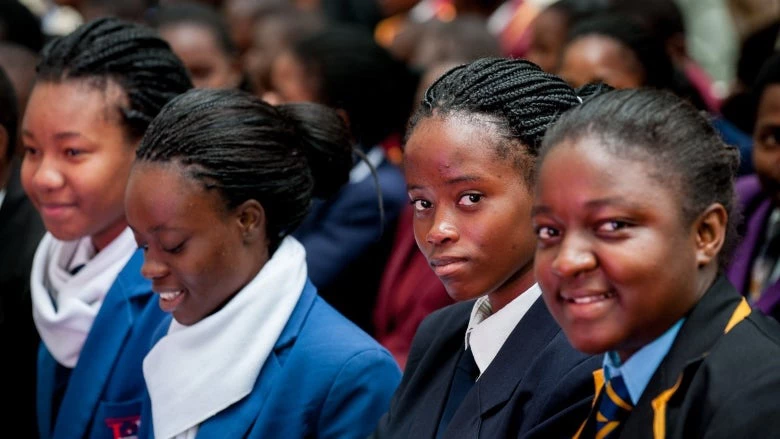 Despite inequalities, there has been notable advancement - gender parity in school enrollment and girls’ completion up to lower secondary levels has been achieved. Photo: Arne Hoel / World Bank
Despite inequalities, there has been notable advancement - gender parity in school enrollment and girls’ completion up to lower secondary levels has been achieved. Photo: Arne Hoel / World Bank
As we commemorate International Women's Day on March 8th, embracing this year's theme, "Invest in Women: Accelerate Progress", we recognize the global strides made towards gender equality over recent decades. Despite advancements, gender disparities are still deeply woven into the societal and economic tapestry of nations, with inequities often perpetuated within the household.
In Zimbabwe, the recently published Zimbabwe Gender-Based Violence (GBV) Assessment paints a disturbing picture, showing many women are still facing danger in their own homes. GBV remains pervasive, with high rates of physical violence. Approximately 39.4% of women have experienced physical violence, and an estimated 11.6% have experienced sexual violence. Although child marriage rates have declined, 16.2% of women were married before the age of 18 in 2022.
Particularly alarming is that women do not always report abusive partners due to fears of retaliation and financial insecurity.
It is very difficult to report your husband to the police when he abuses you because most of us women rely on our husbands for the survival of the family. So, if you report him and he is arrested, you will suffer more, as no one will look after you. Besides, the husband’s relatives will blame you for reporting him and they will be hostile. They will not even care to support you and you will suffer alone.
Source: Focus group discussion with women conducted as part of the Zimbabwe GBV Assessment.
Significant progress has been made towards enhancing legislative and policy frameworks with the objective of addressing GBV. However, gender inequality remains a persistent challenge, driven by unequal human behaviors, gaps in economic opportunities and asset ownership and control, as well as disparities in voice and agency between men and women. The recently published Zimbabwe Gender Assessment, highlights that gender equality indicators in the country lag behind global averages. Maternal mortality rates remain high at 363 deaths per 100,000 live births in 2022, far exceeding the Sustainable Development Goal (SDG) target of 70 by 2030. Women have less access to agricultural land and are underrepresented in government and leadership positions, with only 34% in parliament and 14% in local government. Labor force participation rates and upper secondary completion rates for women are also lower than those for men.
Despite inequalities, there has been notable advancement in various indicators of women's empowerment. Zimbabwe, in particular, has made positive strides consistently surpassing Sub-Saharan Africa (SSA) averages in measures such as the Gender Inequality Index (GII) and the Women, Business and the Law Index. For example, gender parity in school enrollment and completion up to lower secondary levels has been achieved, while the gender gap in tertiary education has narrowed since 2016.
Table 1: Key Performance Indicators Across Genders in Zimbabwe, %
| Male | Female | |
|---|---|---|
| Labor Force Participation | 52.7 | 34.4 |
| Enrollment Rates Primary School | 50.0 | 50.0 |
| Completion Rates Upper Secondary School | 15 | 13 |
Source: Zimbabwe Gender Assessment
In order to tackle the challenges related to gender inequality, a comprehensive set of policy strategies is required. It should include promoting girls' school enrollment and educational attainment, increasing financial inclusion, and enforcing gender quotas within the government. Gender policies and legal frameworks would also benefit from enhanced integration and monitoring of gender targets at various government levels, as well as improved coordination with stakeholders in the private and non-profit sectors.
Demonstrating a firm commitment to advancing the gender equality and women's empowerment agenda, the Ministry of Women Affairs, Community, Small and Medium Enterprises Development (MoWACSMED) recently published the Zimbabwe National Strategy to Prevent and Address Gender-based Violence 2023–2030 and is finalizing revision of the National Gender Policy. The World Bank has been a close partner in the consultation processes for both strategies.
When both men and women are able to participate in their communities on equal terms, without fearing violence and abuse, society becomes economically stronger , and its social fabric becomes more robust. With gender-based violence still prevalent in Zimbabwe, the government must maintain its unwavering commitment to investing in women.






Join the Conversation